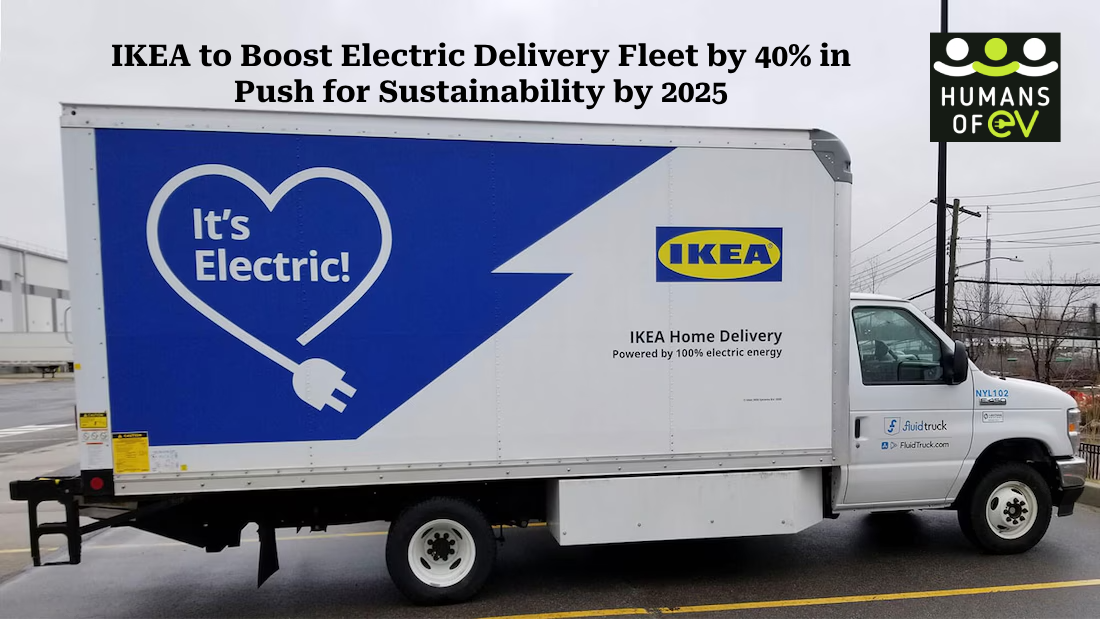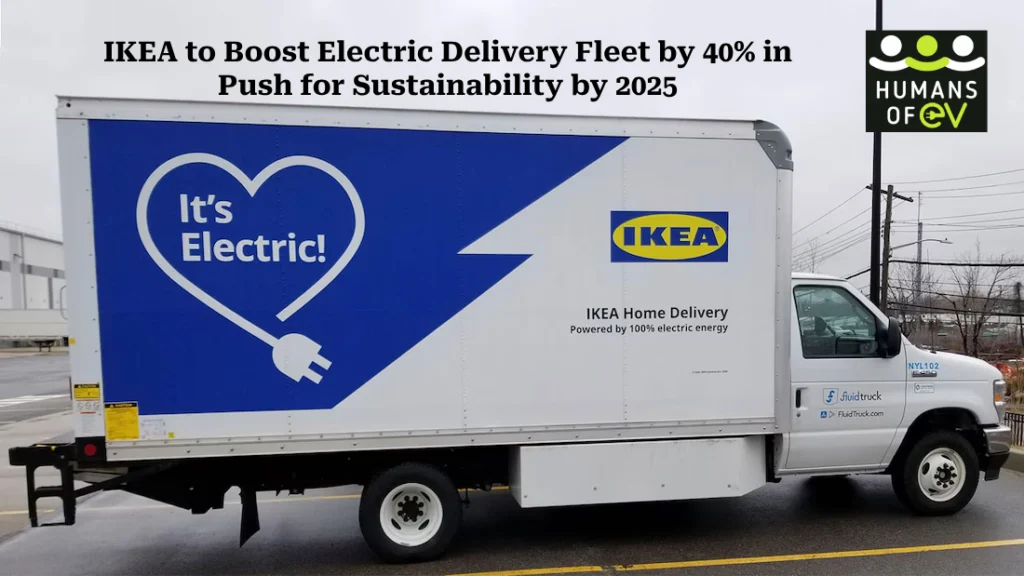
IKEA India goes electric for deliveries, leading in sustainability

Read More
-
Matter Aera: India’s First Geared Electric Bike Sets a New Benchmark
-
Renault Duster EV Confirmed: Iconic SUV Goes Electric
-
Ampere Nexus Now Offers 5-Year Battery Warranty: Raising the Bar for Electric Scooters in India
-
TVS iQube 3.1kWh Variant Launched: More Range, More Value for Urban India
-
Kia Carens Clavis EV to Offer 490km ARAI-Certified Range, Premium Features Revealed

IKEA India: A Leader in Sustainable Delivery
IKEA India has made significant strides in its commitment to sustainability, recently achieving a major milestone: 100% electric vehicle (EV) deliveries in Bangalore, Hyderabad, and Pune. This move signifies a significant step towards a greener future for the company, and they’re not stopping there.
Expanding EV Delivery Network
The company plans to extend its EV-first approach to Mumbai soon and is aiming to adopt it in all new markets, including Delhi NCR. This commitment to EVs is not just a trend for IKEA; it’s a core part of their strategy.
Same-Day Delivery: A New Convenience
In addition to their EV focus, IKEA India has also been testing same-day delivery in Hyderabad. This innovative service is designed to provide customers with even more convenience, and the company plans to roll it out across all markets within the year.
A Journey Towards Zero-Emission Deliveries
IKEA India’s journey towards zero-emission deliveries began in 2019 with the introduction of electric vehicles to its fleet. They started with 3-wheeled tuk-tuks for smaller deliveries and later incorporated retrofit trucks for larger furniture deliveries. This strategic approach has allowed them to adapt to different delivery needs while staying true to their commitment to sustainability.
Building a Sustainable Future
The company has invested in establishing in-house charging infrastructure and is expanding charging stations for large EVs in India. This investment demonstrates their dedication to creating a robust and sustainable infrastructure for electric vehicles, not just for their own fleet but for the entire Indian market.
A Global Commitment to Sustainability
IKEA’s commitment to sustainable transportation extends far beyond their operations in India. It’s a global strategy that reflects their dedication to reducing their environmental impact.
Success Stories Across the Globe
In Europe, IKEA achieved 100% electric home deliveries in Amsterdam as early as 2018. They’ve since expanded this initiative to other major cities across the continent. In the United Kingdom, IKEA partnered with Renault to introduce custom-designed electric vans for last-mile deliveries in London, aiming to electrify its entire UK and Ireland delivery fleet by 2025.
A Vision for the Future
IKEA’s vision for the future is clear: to achieve 100% EV deliveries across all its operations by 2025. This ambitious goal is driven by a commitment to large-scale EV fleet expansion, continuous innovation, and collaboration with the government.
A Global Impact
This initiative is part of IKEA’s global goal to become climate positive. They aim to halve greenhouse emissions across their value chain by 2030 and reach net-zero emissions by 2050. By setting ambitious targets and implementing innovative solutions, IKEA is demonstrating that sustainable practices are not just good for the environment, but also good for business.
IKEA India: A Model for Sustainable Business
IKEA India’s commitment to sustainable practices is a shining example of how businesses can contribute to a greener future. Their focus on EV delivery, same-day delivery, and partnerships with local businesses is a testament to their dedication to creating a more sustainable world.
The Future of Sustainable Delivery
As the world moves towards a more sustainable future, IKEA’s commitment to electric vehicles and innovative delivery solutions is a model for other businesses to follow. By embracing sustainable practices, IKEA is demonstrating that it’s possible to achieve business success while minimizing environmental impact.
Conclusion:
IKEA India’s journey towards a sustainable future is a testament to their commitment to environmental responsibility. Their commitment to electric vehicles, same-day delivery, and partnerships with local businesses is a model for other companies to follow. By embracing sustainable practices, IKEA is showing that it’s possible to achieve business success while contributing to a greener future.
FAQs:
1. What is IKEA’s commitment to sustainability? IKEA is committed to becoming climate positive by halving greenhouse emissions across its value chain by 2030 and reaching net-zero emissions by 2050.
2. How does IKEA India plan to achieve 100% EV deliveries? IKEA India plans to achieve this goal through large-scale EV fleet expansion, continuous innovation, and collaboration with the government.
3. What impact will IKEA’s EV deliveries have on the Indian market? IKEA’s commitment to EVs will contribute to the local economy, job creation, and empowerment of small businesses by partnering with local original equipment manufacturers.
4. What is IKEA’s global strategy for sustainable transportation? IKEA’s global strategy is to reduce its environmental impact through the use of electric vehicles and other innovative solutions tailored to local conditions and infrastructure.
5. What are some of the challenges IKEA faces in implementing its EV delivery strategy? Challenges include the availability of charging infrastructure, the cost of EVs, and the need to adapt to different local conditions.



